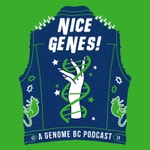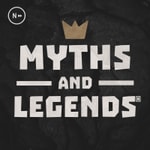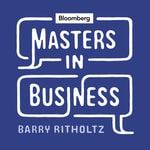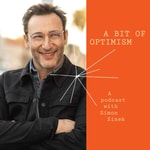Nice Genes! – Détails, épisodes et analyse
Détails du podcast
Informations techniques et générales issues du flux RSS du podcast.

Nice Genes!
Genome BC
Fréquence : 1 épisode/26j. Total Éps: 42

From healthcare and biotechnology to forests and fisheries, the evolving study of genomics is leading to some of the most exciting and world-changing discoveries in science and medicine. Like – did you know that your individual genomic signature can help determine the healthcare treatment you receive? Or that mapping the genomes of trees can inform forest management?
But while the study of genomics holds great promise for the health of people, animals, and the environment, it also confronts us with big questions: How do we study genetic patterns in a way that respects sensitive genetic information, history, and equity? How do we use the power of genomic research to fight climate change? Save the salmon?
Join Dr. Kaylee Byers – a self-described “rat detective” and science communicator as she guides you through fascinating conversations about the what, the why, and the how of genomics.
Classements récents
Dernières positions dans les classements Apple Podcasts et Spotify.
Apple Podcasts
🇨🇦 Canada - science
19/04/2025#78🇨🇦 Canada - science
18/04/2025#90🇨🇦 Canada - science
17/04/2025#71🇨🇦 Canada - science
16/04/2025#50🇨🇦 Canada - science
15/04/2025#89🇨🇦 Canada - science
14/04/2025#80🇨🇦 Canada - science
12/04/2025#92🇨🇦 Canada - science
11/04/2025#64🇨🇦 Canada - science
07/04/2025#66🇨🇦 Canada - science
06/04/2025#63
Spotify
Aucun classement récent disponible
Liens partagés entre épisodes et podcasts
Liens présents dans les descriptions d'épisodes et autres podcasts les utilisant également.
See allQualité et score du flux RSS
Évaluation technique de la qualité et de la structure du flux RSS.
See allScore global : 69%
Historique des publications
Répartition mensuelle des publications d'épisodes au fil des années.
Welcome to ‘Nice Genes!’ Season 4
Saison 4
mardi 27 août 2024 • Durée 02:31
…98, 99, 100! Ready or not, here we come with a brand new season of 'Nice Genes!'
Science is like a game of hide and seek, and genomics is one of its stealthiest players, challenging us to uncover its "see-crets".
Join host Dr. Kaylee Byers for Season 4 of Nice Genes! where we shine an ultraviolet light on the hidden forces that shape our world– and investigate the genomic questions you didn’t even know you had. Like, is “clean beauty” worth the hype? Can genomics help solve the looming threat of antibiotic resistance? And WTF (what the fawn) is chronic wasting disease?!
Get ready for eye-opening episodes that are helping make the invisible, visible– with genomics! Because sometimes, the most exciting scientific questions are hidden in plain sight.
Three Blind Mice
Épisode 6
mardi 9 avril 2024 • Durée 06:48
How Mice and CRISPR are Reversing Blindness
One small step for science, one furry leap for mousekind. Scientists have found a way to reverse a common mutation that causes blindness in both people and mice using gene editing technology.
References:
In Mouse Study, Scientists Use Gene Editing to Reverse a Major Cause of Blindness | US News
Credits:
Children's Songs by Guy Lombardo and his Royal Canadians | Internet Archive
Nature is Queer
Saison 3 · Épisode 3
mardi 3 octobre 2023 • Durée 35:24
Questioning persistent myths about same-sex behaviour in nature
Can we predict who we love from our genetics alone? For LGBT History Month in October, Dr. Kaylee Byers is joined by co-host Dr. Julia Monk to look at what our genes teach us about diverse forms of sexuality and identity. Starting by witnessing a pair of male penguins cozying up, our hosts join flippers to unearth research from naturalists who have recorded same-sex behaviour in the wild. Then they invite socio-geneticist Dr. Robbee Wedow to guide us through his own research, where he puts the question: "Is there a gay gene?" to the test.
—
Highlights:
(00:30) A match made in pebbles
(07:15) Buried papers, Darwinian Paradoxes, and reframing same-sex behaviour
(20:27) Is there a Gay Gene? 'Damned if you do damned if you don't.'
—
Learn-A-Long: https://bit.ly/3FNfz8C
—
References:
Gay Penguins Klaus, Jones ‘rekindled their romance’ at Melbourne aquarium | New York Daily News
Nature is queer. Queer ecologists want us to learn from it. | Grist
Is nature Queer? | Out & About | CBC
Many Genes Influence Same-Sex Sexuality, Not a Single ‘Gay Gene’ | The New York Times
No 'gay gene', but study finds genetic links to sexual behavior | Reuters
How Earnest Research Into Gay Genetics Went Wrong | Wired
—
Credit:
Gentoo Penguin · Pygoscelis papua | xeno-canto
"No Gay Gene"-Born This Way Is A Lie Says GOP Lawmaker | Michael McIntee
Australian current affairs programme "The 7.30 Report" (1995) "Gay Brains" | The 7.30 Report
Bananageddon
Saison 3 · Épisode 2
mardi 19 septembre 2023 • Durée 32:47
Challenging assumptions around food security
Is the world running out of bananas? Well, no. Not…yet — but nature is flashing a big, yellow, squishy "caution" sign. In this episode, Dr. Kaylee Byers peels away our assumptions about food security by looking at bananas. Venturing Down Under, we connect with Dr. James Dale from Queensland University of Technology – a bona fide banana expert, who tells us exactly why this iconic yellow fruit could one day become a rarity. But, with the help of a clever genomic idea, he and his intrepid team of Aussie researchers and farmers are looking at how to hit "abort" on complete Bananageddon.
Special thanks to Mark Smith with Darwin Fruit Farm Party Limited for providing field recordings for this episode.
—
Highlights:
(01:48) Peeling into bananageddon
(10:33) The cavendish equation, a lucky banana swap
(20:57) Safety net, saving the cavendish
—
Learn-A-Long: https://bit.ly/46THrTU
—
References:
Why Don’t Banana Candies Taste Like Real Bananas? | Science Friday
What We Can Learn From the Near-Death of the Banana | TIME
Banana Wars: Power, Production, and History in the Americas | Duke University Press
Chinese coolies | National Library Board
The Story of the Cavendish Banana | Tenerife Weekly
Not your mother’s banana | Bananageddon
Fungal attacks threaten global food supply, say experts | The Guardian
The banana is dying. The race is on to reinvent it before it's too late | Wired
—
Credit:
Journey to Banana Land: By the United Fruit Company (1950) | Institute of Visual Training
Ag Report: Fighting rural farm crime; banana disease; and ag grant award | ABC News
Genes Jump
Saison 3 · Épisode 1
mardi 5 septembre 2023 • Durée 31:01
Cross-examining the origins of our base pairs
One of our most foundational assumptions is that ‘Our DNA is our own.’ But what if our DNA is stolen? There's a puzzling phenomenon called 'horizontal gene transfer' in which one organisms' genetics jumps to another. Dr. Kaylee Byers is joined by invertebrate specialists Dr. Anna Klompen from the Stowers Institute, and Dr. Jessica Goodheart, a marine biologist hunting for nudibranchs, "gene pirates" of the sea. And Dr. Ted Turlings will tell us how his trip to China led to an exciting discovery about the whitefly -- another common but crafty genetic thief. A final word of advice. Next time a goopy organism bumps into you in a crowd, make sure to check your genes!
A special thanks to the laboratory of Professor Youjun Zhang Department of Plant Protection, Institute of Vegetables and Flowers, Chinese Academy of Agricultural Sciences in Beijing. Drs. Zhaojiang Guo, Jixing Xia, and Zezhong Yang.
—
Highlights:
(00:00) Finding the Transforming Principle
(11:34) A colorful and slick ocean pirate
(17:50) The hunt for a fluttering and destructive gene thief
—
Learn-A-Long: https://bit.ly/49qSB4T
—
Resources:
Frederick Griffith - British Bacteriologist | Britannica
Griffith’s Experiment - Progress in Molecular Biology and Transitional Science | Science Direct
20 Cool Genomics Facts - 13&14: Antibiotic resistance | Genome BC
Ancient viral DNA may help humans fight infections | National Institute of Health
Nematocyst sequestration evolution | The Goodheart lab
First Report of Horizontal Gene Transfer Between Plant and Animal | The Scientist
Pretty Sly for a Whitefly | The Atlantic
First known gene transfer from plant to insect identified | Nature
Whiteflies stole a gene from plants to survive their lethal toxins | Earth.com
—
Credit:
Lady Margot Asquith on the outbreak of World War I Roman Styran
Welcome to 'Nice Genes!' Season 3
Saison 3
mardi 22 août 2023 • Durée 02:38
What did your grade four teacher say? "Never Assume. It makes an..." well, you know the rest. We all fall into the trap of our own assumptions from time to time. But in the weird and wonderful world of science, assumptions can misguide research madly off in all directions. That's why challenging assumptions is so important!
Join host Dr. Kaylee Byers and the Nice Genes! podcast team on a journey to learn the truth about some of our most deeply held assumptions. We’ll uncover whether our DNA is truly our own, or a product of genetic theft. We’ll question how societal baggage colours commonly held views about weight and health. And we’ll ponder the genetic puzzle that many assume holds the key to who we are, and who we love. So buckle up your genomics belt and help us follow the assumptions "paper trail." Along the way -- you just might learn the truth about some of our most deeply held societal beliefs.
Gene Shorts! E02: Mother Coquita
Épisode 2
mardi 8 août 2023 • Durée 07:20
How a Reptilian 'Virgin Birth' Baffled Scientists
Dr. Kaylee Byers and Producer Phoebe Melvin share one lonely crocodile's story that surprised scientists and sheds light on their distant relatives that once wandered the earth.
Resources:
'Virgin Birth' recorded in Crocodile for 1st time ever | Live Science
Monsieur Crocodile - Les 5 Pères | Austin Foundation
Crocodile Tears - Eddy Howard and His Orchestra | Austin Foundation
Gene Shorts! E01: Heart of a Grizzly
Épisode 1
mardi 25 juillet 2023 • Durée 08:10
Welcome to our first Gene Shorts Episode! It's the trademark storytelling you love in Nice Genes! but bite sized.
In this episode Dr. Kaylee Byers speaks with Producer Phoebe Melvin about a potentially life saving discovery lurking in the damp depths of brown bear caves.
Un-Digging the Hole
Saison 2 · Épisode 6
mardi 27 décembre 2022 • Durée 00:00
Repairing the Environment: Climate Special Part 2
With disappearing species, plastic-filled oceans, and environmental commitments lagging behind global targets, it's easy to feel like humanity's fate is already sealed. But can we 'science' our way out of it?
In this episode, Dr. Kaylee Byers meets up with Dr. Aria Hahn to discuss what she believes could be a handy tool to repair some of the damage that's already been done to the planet. While becoming a scientist, she spotted the incredible potential of microbes, tiny organisms responsible for the foundations of life on earth. These tiny microbes have a large role to play in helping us create renewable resources and repair the areas devastated by our climate crisis. Second, we join microbiologist Dr. Christian Rinke whose relaxing sailboat getaway lead him to discover a wriggly solution to the world's plastic pollution problem.
From insect guts to cold hydrothermal vents, the odd places on our planet hold critical answers, and may even shape our future on this spinning rock we call home.
Special thanks to the University of British Columbia students who shared their voices on this episode and scientist and diver Dale Anderson for sharing recordings from his adventures to Antarctica.
Resources:
1. What Microbes Can Teach Us About Adapting to Climate Change | American Society for Microbiology
2. Scientists’ warning to humanity: microorganisms and climate change | Nature
3. Nutrient Acquisition and the Metabolic Potential of Photoferrotrophic Chlorobi | University of British Columbia
4. BC's giant landslide serves as warning for other parts of the world | Global News
5. Soapy the Germ Fighter | Avis Films
6. Here’s how the mining industry can respond to climate change | McKinsey Sustainability
7. 'Superworms' survive solely on polystyrene, as researchers look to create plastic recycling technology | ABC News
8. Superworms: how plastic-eating larvae sparked a scientific breakthrough | The University of Queensland
9. Wax worm saliva rapidly breaks down plastic bags, scientists discover | The Guardian
10. Climate change and the microbiology of the Antarctic Peninsula region | British Antarctic Survey, Natural Environment Research Council
11. Survival strategies of an anoxic microbial ecosystem in Lake Untersee, a potential analog for Enceladus | Nature Portfolio
See omnystudio.com/listener for privacy information.
Germ Spotting
Saison 2 · Épisode 5
mardi 13 décembre 2022 • Durée 00:00
Tracking diseases using genomics
Stop the presses! New research shows that viruses locked in the Arctic permafrost for thousands of years have the potential to infect present-day organisms. Accompanied with a warming planet, this issue is really starting to thaw out. So what can brave scientists and institutions on the frontlines of tracking diseases do about it? And how can understanding our genomic history with diseases over thousands of years better prepare us in the fight to overcome them?
Dr. Kaylee Byers starts our journey by slinking into a disease-tracking genomics lab at Simon Fraser University to meet Dr. Michael Trimble and Dr. Will Hsiao to understand the challenge of outpacing the rapid evolution of viruses. Then she pops across the ocean to speak with Dr. Birgitta Evengård and Dr. Jean-Michel Claverie about whether the Pandora's box of ancient diseases frozen in the arctic have the potential to become the next global outbreak as temperatures warm. Plus, we unearth ancient burial sites in Vietnam with Dr. Melandri Vlok, to investigate how climate change exacerbates the tension between human health and pathogens.
Special thanks to Dr. Will Hsiao and Dr. Michael Trimble for allowing us to record with them at Simon Fraser University.
Click here for this episode's Learn-A-Long!
Resources:
1. Infection control in the new age of genomic epidemiology | British Columbia Centre for Disease Control Public Health Laboratory
2. The permafrost pandemic: could the melting Arctic release a deadly disease | Unearthed
3. Viral spillover risk increases with climate change in High Arctic lake sediments | The Royal Society
4. Healthy ecosystems for human and animal health: Science diplomacy for responsible development in the Arctic | The Nordic Centre of Excellence
5. Understanding and Responding to Global Health Security Risks from Microbial Threats in the Arctic: Proceedings of a Workshop | National Academies of Science, Engineering, Medicine
6. Next pandemic may come from melting glaciers, new data shows | The Guardian
7. Scientists Revived Ancient 'Zombie Viruses' Frozen For Eons in Siberia | Science Alert
8. A 48,500-year-old virus has been revived from Siberian permafrost | NewScientist
9. Anthrax outbreak in Siberia | euro news
10. CBC News: The National | Russia invades Ukraine | Canadian Broadcast Corporation (CBC)
11. National Geographic: Explorer Directory, Melandri Vlok | National Geographic
12. Paleoepidemiological Considerations of Mobility and Population Interaction in the Spread of Infectious Diseases in the Prehistoric Past | Bioarchaeology International
13. The Epidemiological Transition: A Theory of the Epidemiology of Population Change | Milbank Memorial Fund
14. Forager and farmer evolutionary adaptations to malaria evidenced by 7000 years of thalassemia in Southeast Asia | nature portfolio
15. CARD 2020: antibiotic resistome surveillance with the comprehensive antibiotic resistance database | Department of Molecular Biology and Biochemistry, Simon Fraser University
See omnystudio.com/listener for privacy information.









